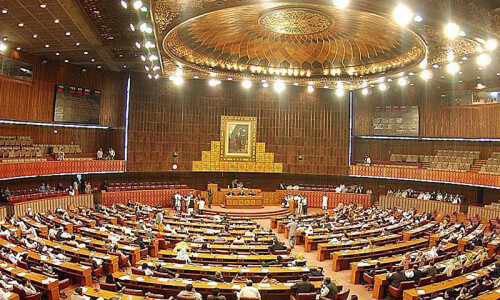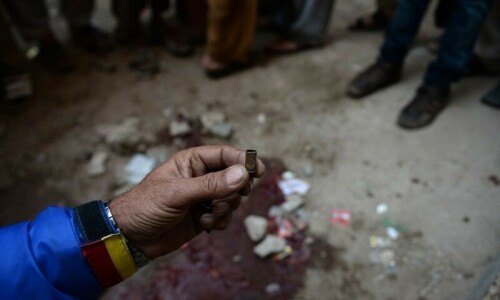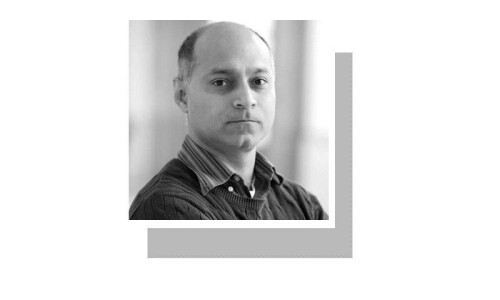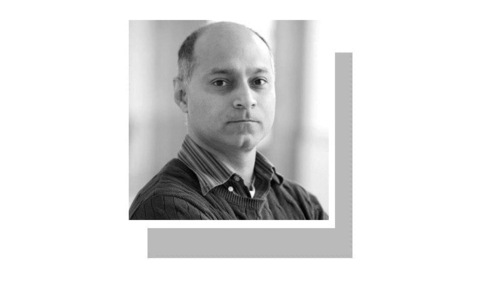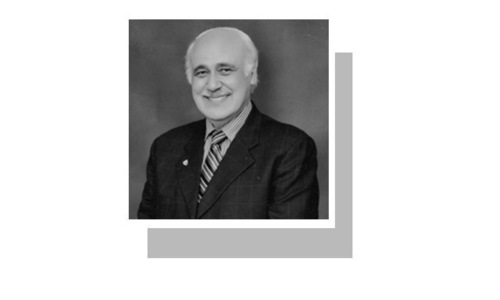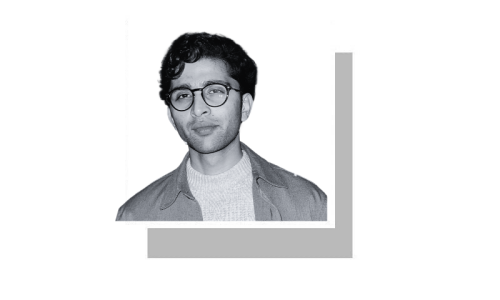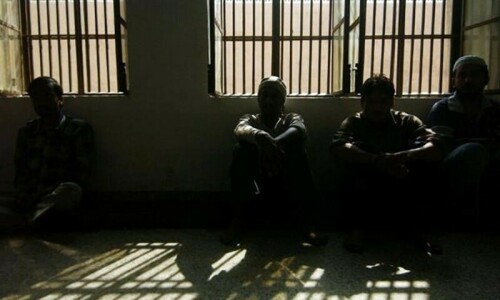KARACHI: Participants at a forum organised by the Centre of Biomedical Ethics and Culture, Pakistan (CBEC) on Saturday, titled ‘Once upon a time in Pakistan’, looked into the poetry, politics and people of the 1970s with investigative journalists Saba Imtiaz and Tooba Masood, who have produced a podcast, Notes On a Scandal, on the happenings around the mysterious death of famous poet and bureaucrat Syed Mustafa Zaidi.
Fareed Masood, the moderator at the event, provided some background about the late Mustafa Zaidi, a gifted poet and talented bureaucrat who was removed from his job by Gen Yahya Khan when he removed 303 civil servants one year before Mustafa was found dead at his place in Karachi’s KDA Scheme 1 with his friend Shahnaz Gul, the wife of a businessman, lying unconscious nearby. Mustafa’s wife had already left for Germany with their two children and after his mysterious death there was a huge scandal about his affair with Shahnaz.
The moderator asked the journalists about their motivation to do the podcast. Tooba said that she and Saba started researching the incident in 2019.
“My late father liked Mustafa’s poetry so I googled him to learn so much about him and his friend Shahnaz and the circumstances leading to his death and what happened after that. Researching, Saba and me looked at newspaper archives, met people and found so much information that we felt that we had to tell the story so last year, we decided to do a podcast. Now we are into our second season,” she said.
“I like this medium for sharing stories. Age is not an issue with this podcast because even older people who do not understand technology ask someone to download it for them to listen to it,” she said.
Saba, on the other hand, said that she was bored in office one day and looking at American archives about what was happening in Pakistan in the ‘70s.
“I came across the story about a poet and bureaucrat found dead mysteriously and asked senior journalist Abul Hasnat about it. He threw more light on the matter, which was at the back of my mind. Then when working old stories, Tooba and I thought why not work on this as it happened in 1970 and carried relevance in terms of society and how the country developed and how perceptions changed, how the bureaucracy changed and everything else,” she said.
Tooba said that researching about the ‘70s opened up a new world for her.
“I’m 33. I have never experienced night life in Karachi, the fashions of the time, the social events at Hotel Metropole. It was a completely different world. And then the papers of the time also had election coverage,” she said.
Saba added to that about a lot more happening with cross sections of society.
“Even if you were studying engineering, you had a connection to poetry because maybe you had a friend who liked poetry, or maybe your father was into it. And there was the bureaucracy connection, too. Politics was also changing with the biggest kind of political experiment of the time. The newspapers showed lines of people waiting for their turn to vote, people lifting old people who wanted to vote, women being shown voting.”

The journalists shared a lot of newspaper cuttings from the time with all these things along with news about the poet/bureaucrat’s death and findings in his case, including his body being exhumed for a second postmortem. It was a much politicised and scandalised story.
Tooba pointed out how coverage in different newspapers was different as some such as Dawn provided the facts and most evening newspapers sensationalised it.
“There were the personal lives of the elite and even generals coming out and people had an appetite for such news,” she said.
Saba said that the people were convinced that there was some big conspiracy around the death and the woman found unconscious at the site was linked to General Yahya Khan.
“People needed a villain, who was Yahya. Even politicians like Zulfikar Ali Bhutto took Shahnaz’s name and promised to punish her after coming into power,” she said.
Senior Journalist Ghazi Salahuddin, who was working with Dawn on those days, said that Mustafa Zaidi took losing his job to heart.
“He already had suicidal thoughts despite having the beautiful Shahnaz by his side. Civil Service was a big deal in those days,” he said.
Saba also said that the police also believed at first that it was a suicide because Mustafa Zaidi was in the habit of compelling people by threatening suicide.
“He had attempted, too, several times. Or it was a murder made easy by covering it up with suicide. But the evidence, just as it leaned into suicide also leaned on other facts that say it was not suicide,” she said.
Tooba also said that while researching the story, they came up with many murder theories with accomplices and accessories to murder.
Senior journalist Jaffer Bilgrami, who covered the case at that time, said that he broke the story of the murder.
“We used to get news from the police and I reported it. Then a few days later Reza Ali Abidi told me that I had missed the story about the murder of the famous poets and civil servant, but I hadn’t,” he said, adding: “By the way, there were traces of a third person in room at the time of the crime.”
Saba said that even Mustafa’s family also said that so many things were missed by the police when collecting evidence at the crime scene because the initial team saw it as a clear cut suicide.
Tooba pointed to the way the case was also sexualised as people went on and on about Shahnaz’s beauty.
“Also the two getting caught together like this, she a mother of two having an affair with a married man, made it immortal. Somehow it was okay until it all happened quietly behind closed doors, but when it was out, it was a huge scandal,” she concluded.
The forum also featured recitals of Zaidi’s poetry.
Published in Dawn, October 9th, 2022


















